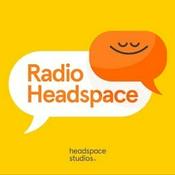Episodios disponibles
5 de 372
- Episode 410: 418. Beta Blockers Post MI, PSA, Youtube,10.1016/j.jaip.2025.07.005.40675327All of the videos were found to be useful or very useful, 99% were of moderate or high reliability, and 99% had moderate to excellent educational quality Prostate-specific antigen levels among participants receiving annual testing. JAMA Oncol 2025 Nov; 11:1341 10.1001/jamaoncol.2025.3386.40965920PSA levels at or above 4.0 ng/mL fell below that threshold on the next annual test 30% of the time. 10.1016/S2665-9913(25)00250-4.During 10 years of follow-up, patients in the PKA and TKA groups did not differ significantly in pain, function, or quality of lifehttps://www.nejm.org/doi/full/10.1056/NEJMoa2508026?query=TOCAmong patients who underwent CABG for an acute coronary syndrome, ticagrelor plus aspirin did not result in a lower incidence of death, myocardial infarction, stroke, https://www.nejm.org/doi/full/10.1056/NEJMoa2509907?query=TOCIn this trial, a high-dose inactivated influenza vaccine did not result in a significantly lower incidence of hospitalization for influenza or pneumonia than a standard dose among older adults. https://www.nejm.org/doi/full/10.1056/NEJMoa2509834?query=TOCAmong community-dwelling adults 65 to 79 years of age, there appeared to be fewer hospitalizations for influenza or pneumonia with high-dose inactivated influenza vaccine than with the standard dose but the NNT is like 1500! https://pmc.ncbi.nlm.nih.gov/articles/PMC12594118/Afib should not be screened even if the authors say yes https://pubmed.ncbi.nlm.nih.gov/40997143/defines the US cost-effectiveness threshold as $120 000 per quality-adjusted life year gained, https://pubmed.ncbi.nlm.nih.gov/40481660/In CKD, electronic letter nudges for patients or primary care practices did not differ from no letters for prescriptions of guideline-recommended RASis or SGLT2is at 6 months. https://www.clinicalkey.com/#!/content/playContent/1-s2.0-S0140673625015922?returnurl=https:%2F%2Flinkinghub.elsevier.com%2Fretrieve%2Fpii%2FS0140673625015922%3Fshowall%3Dtrue&referrer=https:%2F%2Fclinician.nejm.org%2Fβ-blocker therapy on clinical outcomes in patients with myocardial infarction and mildly reduced (40–49%) https://www.nejm.org/doi/10.1056/NEJMoa2512686#ap2&uccLastUpdatedDate=2025-12-12%2005%3A34%3A29.658%20%2B0000&rememberMe=falseIn this meta-analysis including individual-patient data from five randomized trials, beta-blocker therapy did not reduce the incidence of death from any cause, myocardial infarction, or heart failure in patients with an LVEF of at least 50% after myocardial infarction without other indications for beta-blockers.--------40:49
- Episode 409: 417. Aspirin, Pre-diabetes, Menopause, Type 1 Diabetes, HPV Vaccine and more!!!!Wolfe R, Broder JC, Zhou Z, et al. Aspirin, cardiovascular events, and major bleeding in older adults: extended follow-up of the ASPREE trial. Eur Heart J. 12 Aug 2025. [Epub ahead of print]. https://pubmed.ncbi.nlm.nih.gov/40796244/ Donocan LE et al. Closed-loop insulin delivery in type 1 diabetes in pregnancy: The CIRCUIT randomized clinical trial. JAMA 2025 Oct 24; [e-pub]. (https://doi.org/10.1001/jama.2025.19578) https://jamanetwork.com/journals/jama/fullarticle/2822766 https://onlinelibrary.wiley.com/doi/full/10.1002/art.24894?msockid=3f10fb6c3d086e4c32e2ede23c9e6fbc https://pubmed.ncbi.nlm.nih.gov/41118187/ https://pubmed.ncbi.nlm.nih.gov/41115754/ https://pubmed.ncbi.nlm.nih.gov/41138956/--------34:04
- Episode 408: 416. Car Seats, Beta-Blockers after a Heart Attack, Oral Semaglutide, High-Dose influenza vaccineBeta-Blockers after Myocardial Infarction without Reduced Ejection Fraction - https://www.nejm.org/doi/full/10.1056/NEJMoa2504735?query=WB McGuire DK et al. Oral semaglutide and cardiovascular outcomes in high-risk type 2 diabetes. N Engl J Med 2025 Mar 29; [e-pub]. (https://doi.org/10.1056/NEJMoa2501006) Interactive Virtual Presence to Remotely Assist Parents With Car Seat Installation https://pubmed.ncbi.nlm.nih.gov/41077424/ Effectiveness of high-dose influenza vaccine against hospitalisations in older adults (FLUNITY-HD): an individual-level pooled analysis https://pubmed.ncbi.nlm.nih.gov/41115437/--------22:55
- Episode 407: 415. Do Air Filters Lower Blood Pressure?https://pubmed.ncbi.nlm.nih.gov/40767818/This is a great example for students and residents to look and see that the abstract does not always match what the paper actually says--------9:34
- Episode 406: 414. Resistant Hypertension, Physical Therapy, Steroids for PneumoniaEfficacy and safety of Baxdrostat in uncontrolled and resistant hypertension compared to placebo in phase three when there are MRA available that are cheap and availableA randomised trial of physical therapy for meniscal tear and knee pain discovers that home exercises are just as good as inperson physical therapya Pragmatic trial of glucocorticoids for community acquired pneumonia that I don't think you can trust--------15:46
Más podcasts de Salud y forma física
Podcasts a la moda de Salud y forma física
Acerca de Questioning Medicine
Join Andrew on a medical rollercoaster as we ask a medical question and answer it based on recent published papers.
Sitio web del podcastEscucha Questioning Medicine, On Purpose with Jay Shetty y muchos más podcasts de todo el mundo con la aplicación de radio.net

Descarga la app gratuita: radio.net
- Añadir radios y podcasts a favoritos
- Transmisión por Wi-Fi y Bluetooth
- Carplay & Android Auto compatible
- Muchas otras funciones de la app
Descarga la app gratuita: radio.net
- Añadir radios y podcasts a favoritos
- Transmisión por Wi-Fi y Bluetooth
- Carplay & Android Auto compatible
- Muchas otras funciones de la app


Questioning Medicine
Escanea el código,
Descarga la app,
Escucha.
Descarga la app,
Escucha.

































